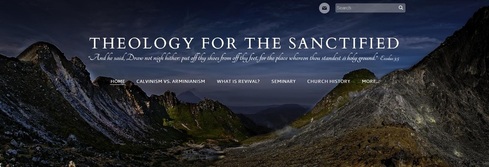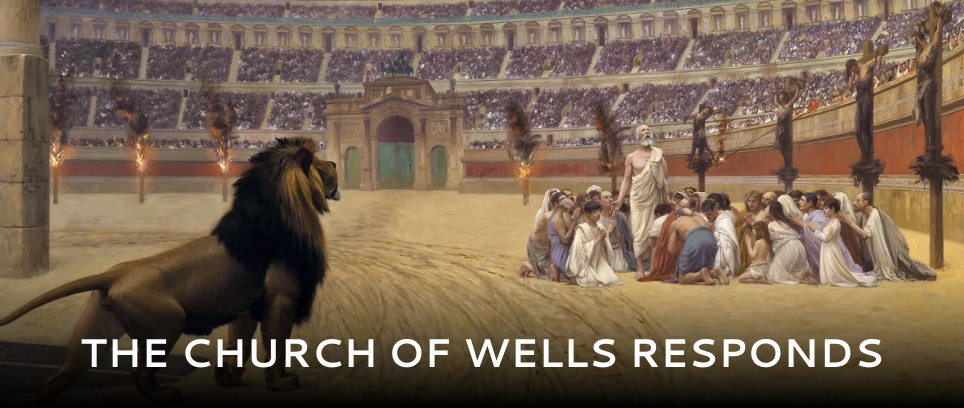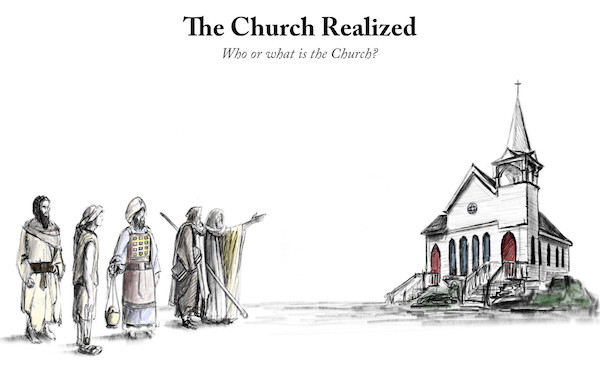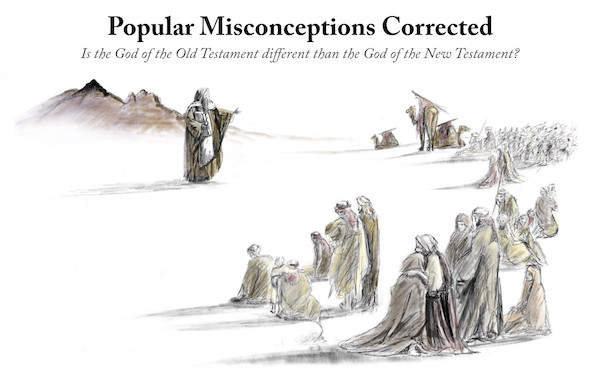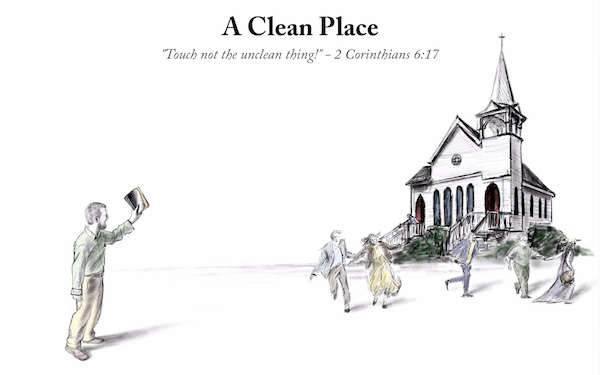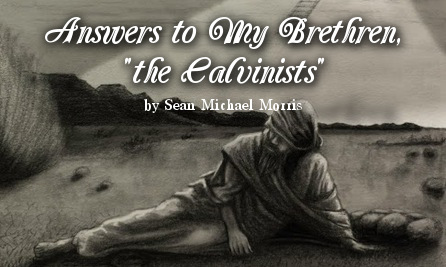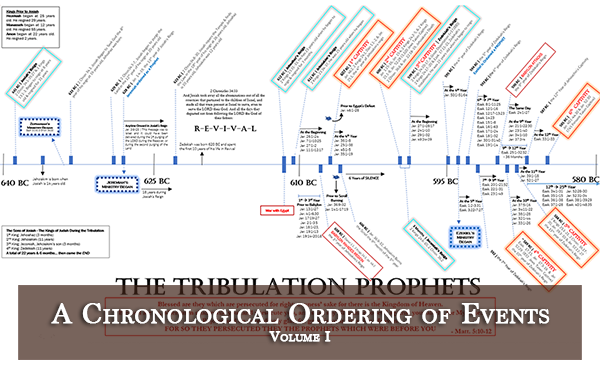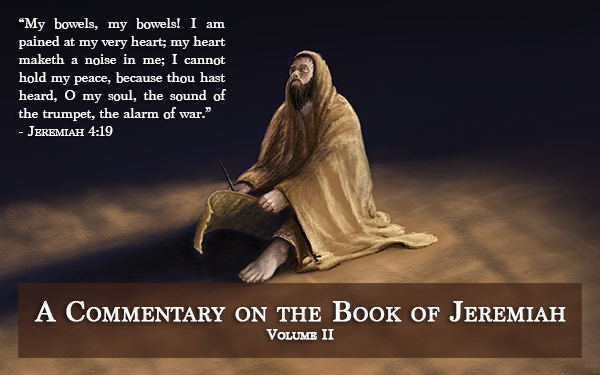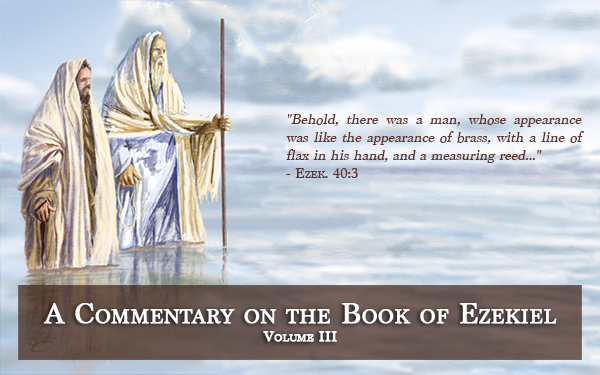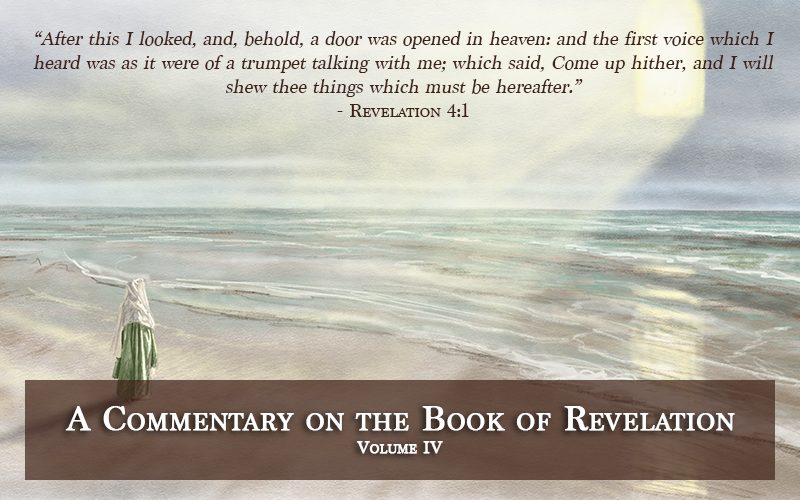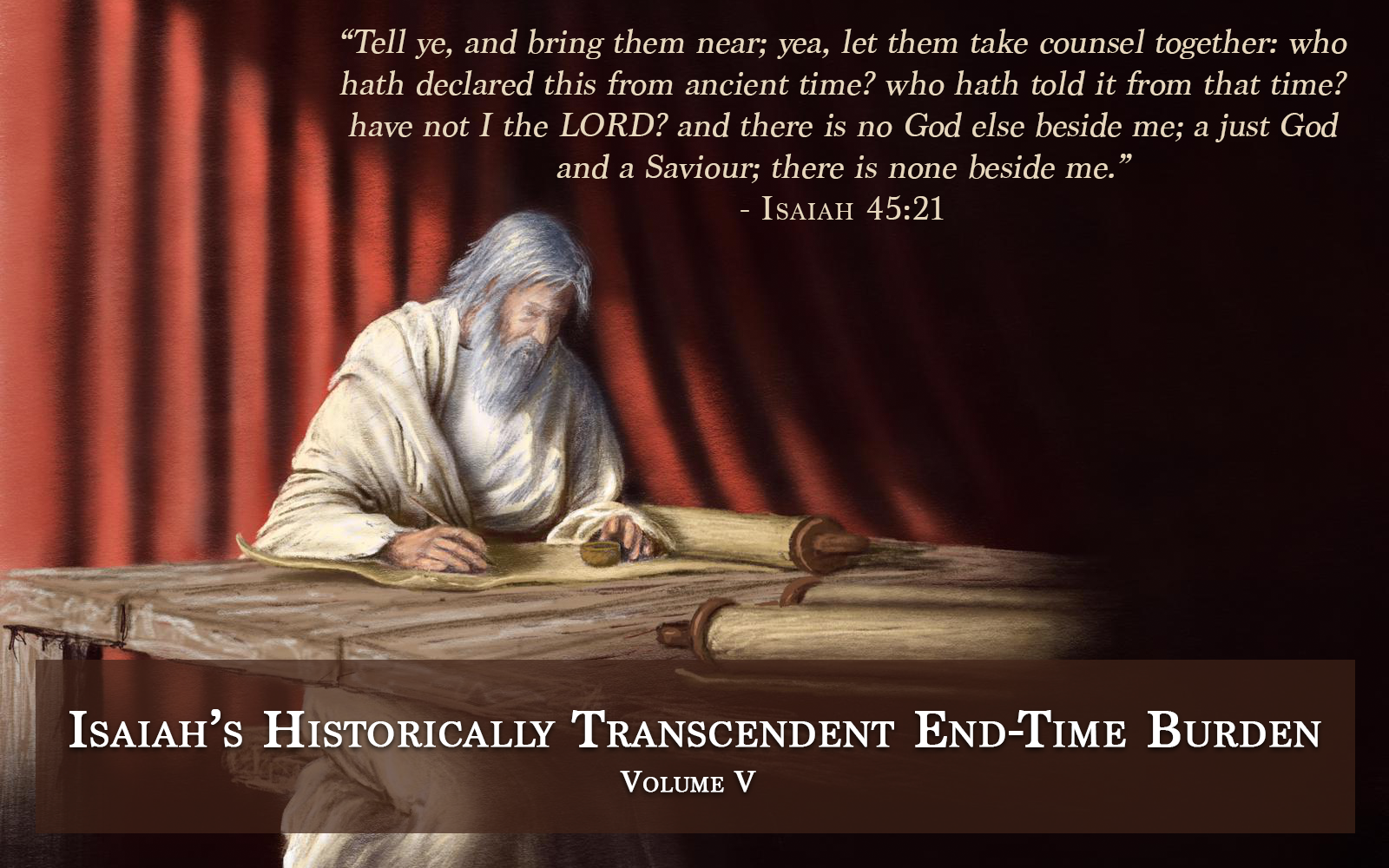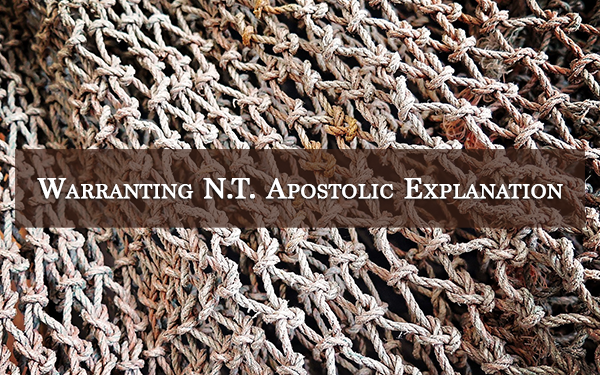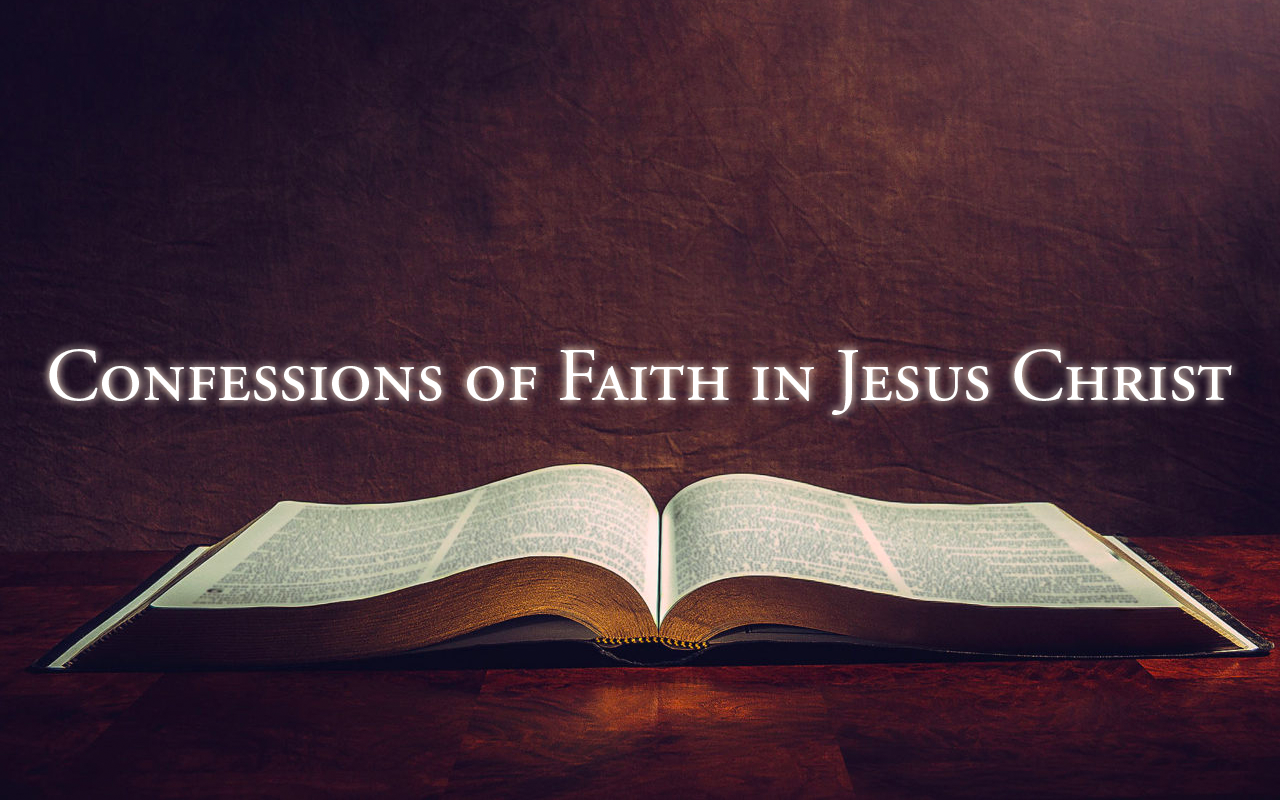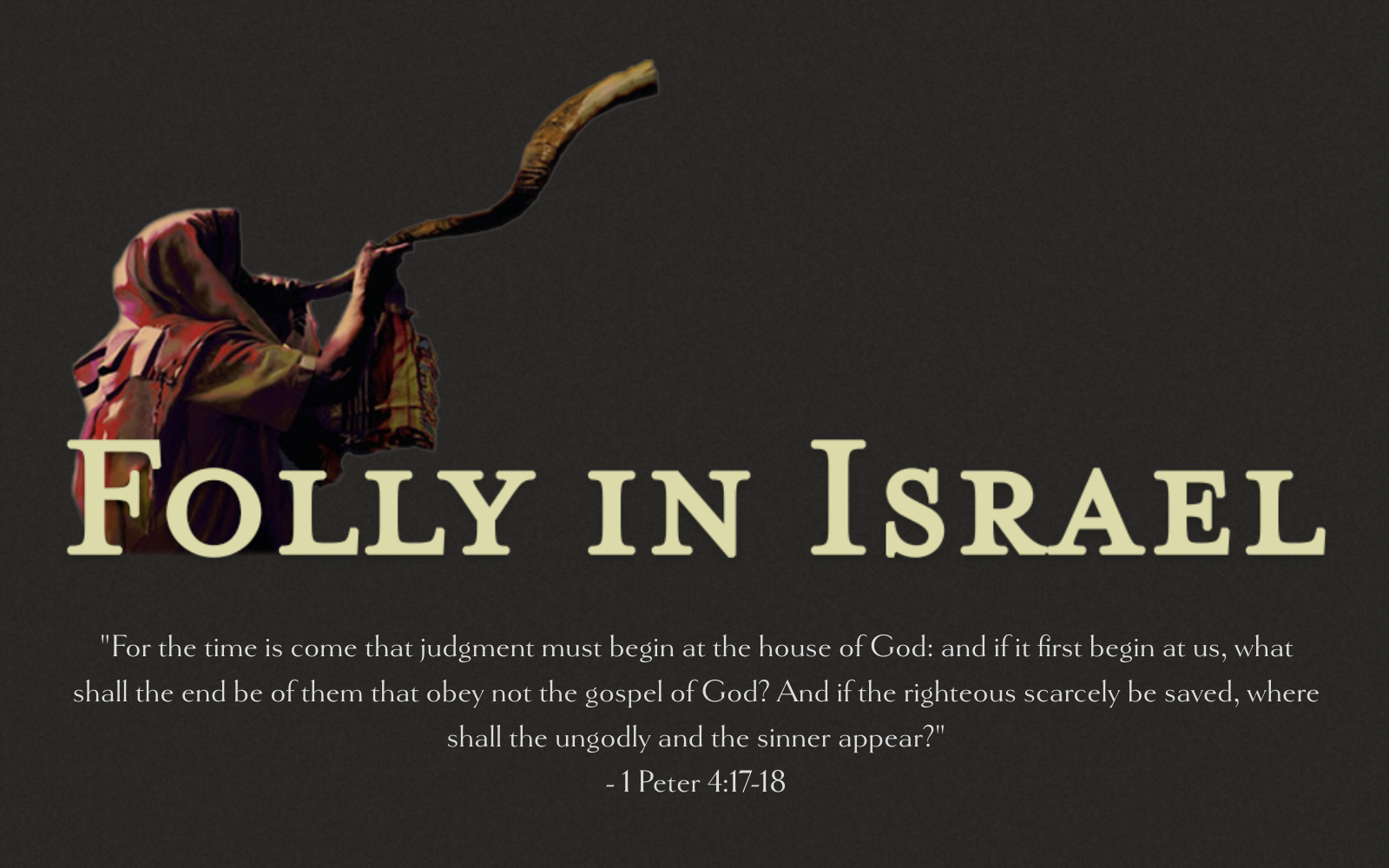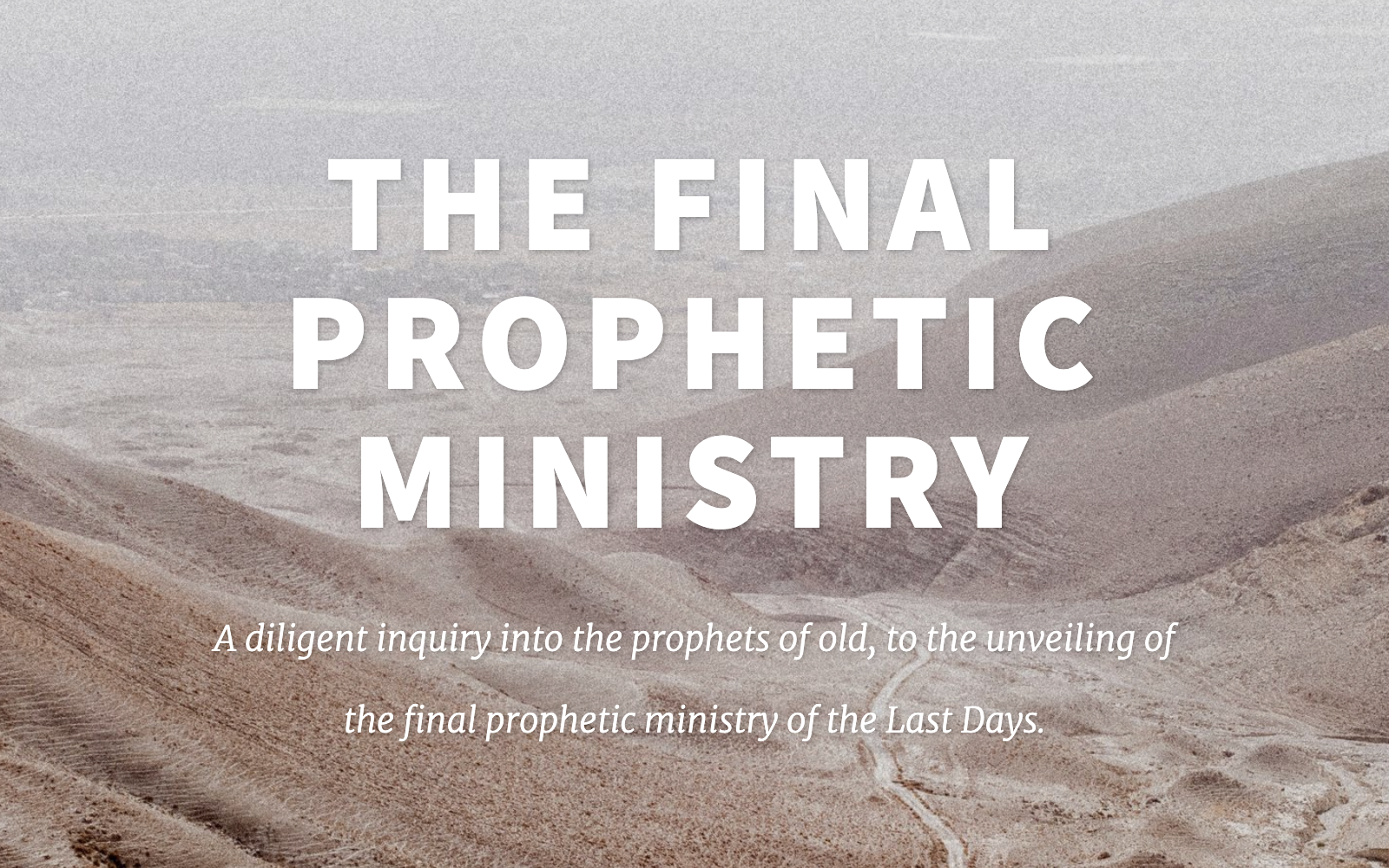CHAPTER #2: Evidently, the workings of salvation and the existence of the Church were progressively revealed in scripture through the aforementioned figureheads, Abraham, Isaac, Jacob, and the Israelites of the Exodus Generation. Divine argumentation weaves these four generations together in a culmination of unprecedented detail devoted to the working of salvation in the Exodus Generation (“the Church in the Wilderness” - Acts 7:38) – scriptural detail that defines and memorializes the true essence of what the Church is in God’s sight for every generation to come. This unprecedented detail reveals to the students of Biblical Church History the reasoning behind the eternal purpose of God stated by Isaiah, who prophesied, “ALL Israel shall be saved” (Rom. 11:26, Isa. 59:20). The reason behind the purpose of God to save every living Israelite at the end of the world is, simply put, that God saved every living Israelite at the beginning. This is the essence of what a Church is in God’s sight: an assembly and people among whom every individual is gloriously saved! The pastime events of the Church from its beginning unto Abraham and, furthermore, from Abraham to the Exodus Generation, do suddenly become relevant when this essential truth of the Church is finally understood! Suddenly, I say, and strikingly! The events which took place at Mount Sinai (The Descent of God’s Immediate Presence) and the Law which was given (to regulate the people, place, and environment among which God dwells) become illuminated with profound meaning! All of these events were recorded with exhaustive detail so as to objectively define “the Church” to every generation that was to come; hence, without surprise, the Church as it existed in the Exodus Generation was repeatedly and continuously recalled in hopes that it would be revived because of what God covenanted, prophesied, and promised in relationship to the Israelite people beginning with this generation. What are the ancient criteria which was set-forth as an exemplification of the Church to be sought after from every generation thenceforth? They were a liar free and idolatry free Israelite people, dwelling in saving communion with the pre-Incarnate Christ, perfected in holiness, raptured in the love of espousals, with every individual beautified in saintliness and regenerated, collectively rejoiced over by the LORD who is the King of Glory!
CHAPTER #3: This criterion was not easily obtained or kept by the Church, hence the controversy of becoming God’s people. Such unspeakable riches were invested in the people of God, the Church, and with much difficulty! A difficulty easily discerned by “The Great Pause” and a Generation Lost… therein we can see the staggering beginning and ending of the Exodus Generation! Nevertheless, these events served their purpose. We are now enabled to understand exactly what it means for Israel to become “God’s People”, all implications disclosed (the implications of the Person of God “in the midst”). My reader, God was the central issue! And, God is the central issue! For God to be with an individual person is one thing, and for God to be in the midst of a people is another. In order to understand the happenings of Church History, we need to understand the Church first of all: namely, that God is not seeking a person, but a people. God is not seeking to be inside of individuals, merely, but among them. Hence there is a very great difference between God being within men and among men, according to scripture. What do I mean, exactly? Think of it, my reader. Every saved individual experiences God’s presence in their personal life, but for God to be especially and immediately manifest in the midst of an assembly of people meant something completely different altogether; and, without exaggeration, the difference between the two has WORLD-SHAKING IMPLICATIONS! Historical examples are very detailed to express the presence or absence of God’s Glory and all the associated implications involved. Illustrating this, God was with David individually even while He was abandoning the midst of David’s army corporately (see Psalm 60:1-12). This is because there were strict rules and conditions associated with the fulfillment of the promise that God Almighty would be in the midst of the people, the Church (Lev. 26:12, Num. 5:1-4, Deut. 23:14). God was in the midst for the operations of His glory (agricultural prosperity and wealth: Lev. 26:4-5, 10; victory on the battlefield: Lev. 26:6-8; fruitful wombs: Lev. 26:9; other blessed operations: Deut. 28:1-14), and He abandoned the midst of the Church for the departure of operating glory (Ps. 60:9-11, Deut. 23:14; the language of salvation: Duet. 20:4; the language of damnation: Deut. 1:24). Also, let us be careful to note: this Old Testament experience is indisputably relevant and strikingly parallel in the Church of the New Testament, both individually and corporately. The rules associated with the operation of God’s Glory in the Church are re-quoted and re-established word-for-word in the New Testament (for example, see the surrounding context of Matt. 18:20, Eph. 4:10-13, John 17:21-23, & Rev. 1:13, 2:1, 2 Cor. 6:17-7:1, and the like). Therefore, apparently, salvation in full volume is when the Glory of God is within and among His people, the Church. In confirmation of this peculiar situation where God’s presence was and is the central issue, the terminology and vocabulary of salvation in the Church did from thenceforth, in the Old Testament, became Salvation & Damnation in Reference to “The Face of God” who dwelt immediately in their midst.
CHAPTER #4: Salvation and damnation were described in reference to “The Face of God” and the presence of God, but there’s more. A biblically instructed understanding of the Church as it is unfolded in divine argumentation will lead the saints to one central focus: “The GLORY OF GOD Departing & Returning to “The Church”. Without mistake, this issue is brought into focus by the apostle Paul in application to the Gentile Church. Paul’s argument, set forth in 2 Corinthians 6:14-7:1, is unintelligible by most because they have not studied the centuries of inspired scripture which detail the reasons and righteousness for why the Glory of God can, has, and does depart and return to the Church. Again, I say, Paul argued this to be a New Testament reality just as much as it was an Old Testament reality. Where did Paul contrive his argument from, you wonder? Specifically speaking, Ezekiel, Jeremiah, and Hosea spoke of the Glory of God departing in the same terms quoted and applied by the apostle Paul in 2 Corinthians 6:14-7:1. Ezekiel Jeremiah, Hosea, Amos, and Zechariah spoke of the cessation of the legal identity of the Church as God’s sons and daughters at the departure of the Glory of God because of misconduct in matters of unholiness and uncleanness, the same terms which are quoted and applied by the apostle Paul in 2 Corinthians 6:14-7:1. And, finally, Ezekiel, Jeremiah, Hosea, Zechariah, and Joel spoke of the restoration of the legal identity of the Church so as to prove that, when the Glory of God returns, so does the legal identity of the Church, and the reason the Glory of God does and will return is because of the perfection of holiness and cleanliness among the Church; with perfect parallelism, yet again, these are the same terms which are quoted and applied by the apostle Paul in 2 Corinthians 6:14-7:1. Be mindful, my reader! In the event where the Glory of God departs and then returns, what is accomplished in and among Israel, the Church? The aforementioned prophets were careful to detail the wondrous accomplishment! Very specifically, it was written: adultery is cleansed from Israel, filthiness is purged, obedience to God’s voice is restored, all sinners have been removed from the people and Land of Israel, purity is restored, there are no detestable things or abominations of any sort, no more rebels or transgressors, all Israelite filthiness, idolatry, uncleanness, iniquity, and shame is cleansed, whoredom is put away, no stranger, uncircumcised in heart, or uncircumcised in flesh do enter into the Sanctuary to defile it, a sound and biblical difference is put between the holy and unholy and the clean and unclean, and, thus, the LORD is their God and they are His Family and people. What a glory! All this being understood, the terms of “Divine Acceptance or Divine Rejection” are profoundly significant and easily discoverable. The apostle Paul quoted the relevancy of the aforementioned criteria in the terms of NT divine acceptance, God saying, “I will receive you” (2 Cor. 6:17), and he was quoting Moses, Amos, Jeremiah, Ezekiel, and more. Yes, and furthermore, the Lord Jesus Christ is depicted by the apostle John in resurrected and ascended glory to the end that He might communicate to the Churches of the Province of Asia whether or not they were divinely accepted or divinely rejected. Observing this, in Revelation Ch. 2 & 3, we can see a glorious continuation of the same GOD of old-time prophets, a God whose glory pursues the same objectives of salvation and Church Holiness whether in the Old Testament or the New Testament! Upon Divine Acceptance, the Glory of God returns to the Church! Are we prepared to endure the manifestation of God’s Glory in Christ among the Church? The same Christ who spoke to the backsliders of the Churches, saying, He “WILL FIGHT” (Rev. 2:16), He “WILL CAST” (Rev. 2:22), and He “WILL KILL” (Rev. 2:23)!
CHAPTER #5: These objectives of Church Purity exist because of who God is, by nature. Therefore, in whatever place God is – which is namely, the Church – there the prerogative for and performance of Church Purity do also exist because the immediate presence of God equals immediate judgments against sin. This is a reality memorialized by blood and fire as the judgments of God went forth in the Old Testament, my reader. Why? As I stated before, in order to understand the happenings of Church History, we need to understand the Church first of all: namely, that God is not seeking a person, but a people. God is not seeking to be inside of individuals, merely, but among them. And, if God is going to be among Israel by His immediate presence, then let these words sink down into your ears: God said to Israel, “there shall be NO WICKEDNESS among you” (Lev. 20:14). It is reasonable! God and sin CANNOT both be among Israel. Apparently, what happens among this people happens in the special and immediate presence of God; and, as a result of this, God demanded the eradication of all wicked persons and sinners from among the people of Israel, the Church. God’s purifying command, “put the evil away from the midst of thee”, or, “that soul shall be cut off from his people”, and the like, is demanded of the Church at least 28 times in scripture. Upon understanding the terminology consistent with these judgments of God in the Old Testament, it becomes clear that these judgments still exist in the New Testament. As a word-for-word quotation, Paul commanded the Gentile Christian Church: “put away from among yourselves that wicked person” (1 Cor. 5:13). Sound familiar? Paul knew exactly what he was saying and meaning when he wrote this under the inspiration of the Holy Spirit. For example, speaking to the Church of Ephesus, Paul said, “let it not be once named among you” (Eph. 5:3). These judgments must exist wherever a Church exists (a people called-out of the world into separation and holiness via God’s Presence), because separation is maintained and persevered among the Church through these judgments. Without this one thing – separation – the essence of the Church is lost. The Church is “The Called-Out Ones”, by definition. This means that it is a community of separated ones! Therefore, when the NT scripture uses the word, “called”, the inspired writers had in mind this central principle inherent in the very word Church, which means “the called-out ones”. And in confirmation to this, the detailed criterion attributed to this “calling” does reveal just how spiritually focused and intentional a New Testament Church Assembly was in the 1st century, according to NT scripture.
CHAPTER #6: To come to a full realization of what a Church is, as it existed in the Old and New Testaments, it becomes increasingly relevant to understand the anatomy and infrastructure of the Church as it existed via a Civilization. The existence of the Church in the Old Testament is easily proven by Acts 7:38, when she was spoken of as, “The Church in the Wilderness”, but there is no explicit NT reference to the Church, calling her, “The Church in the Civilization”. Because of this, one can be tempted to believe that perhaps there wasn’t a continuation of Church Purity and the associated judgments when the Church was in a civilization, and God still accepted it. It is true that a lot changed when the Church moved from the Wilderness to a Civilization, but the rules of Church Purity and all associated judgments therewith did not change! This is easily discernable when one comes to understand the anatomy of the Church as a Civilization. It is true that the Glory of God was no longer leading the people via a Pillar of Cloud by day and a Pillar of Fire by night, but the Glory of God was still in the Church as a Civilization in discernable ways of equal proportion and magnitude! What is the Glory of God in the Church as a Civilization, you wonder? And how can this be comparable to the Glory of God via the Pillar of Cloud and Fire, you wonder? Shockingly, the workings of God’s Glory existed via the infrastructure of a civilization, namely, a Government, and this Government was wondrously known to be an operation of “Divinely Empowered Civil Justice”. What does this mean? Well, my reader, this was no human Government! The vision of God’s Glory for the accomplishment of Church Purity via a Government was revealed by King Solomon’s very own testimony! Accordingly, Solomon testified that no man, Household, City, or Province of the Nation of Israel was exempt from the operation of God’s Glory for the accomplishment of Church Purity! Furthermore, and with profound detail, Solomon bore witness to and detailed all the aspects of separation and holiness in their continuation through Five Themes, and therein do we see the workings of the Glory of God in unprecedented clarity and relevance. For example, Solomon testified to the ultimate, sovereign, and transcendent rule of God in Israel via the heart by spiritual judgments for the accomplishment of Church Purity as Theme #1. What a Glory!
CHAPTER #7: My reader, have you ever wondered why the Book of Proverbs is not proverbial for you and I in heathen societies and governments? Have you ever wondered where all the ultimatums of blessing and curse are in this our day? Can you imagine it, my reader! Actually living in a civilization where all the proverbs of the Book of Proverbs were so pervasively and unmistakably present in Israel that to them, shockingly, the Glory of God depicted in the proverbs was but common sense knowledge held in remembrance by all Israelites! The fact that God was KING in Israel through all the meticulous ways presented in the Book of Proverbs was, shockingly, common sense. Those things which are common among this uncommon people bear witness to the sheer magnitude of God’s Glory which was in operation. Solomon’s inspired oration of Divinely Empowered Civil Justice (contained in the Book of Proverbs) was written with divine genius as a testimony to all nations and peoples how that in Israel, “God is known” (Ps. 48:3)! The entirety of this uncommon people – a “Holy Nation” (Ex. 19:6, 1 Pet. 2:9) – was made to fear God because they were utterly encompassed and enveloped by the activity and actuality of GOD as KING. Bearing witness to this, Theme #2 reveals how the whole population of Israel came under an intense awareness of God’s imminent judgment upon any uncleanness and impurity existing in the Land of Israel, the Church. Gloriously, Solomon details the judgments of God pursing the objectives of Church Purity to the vanquishing of unlawful sex, thievery, and covetousness, establishing a love for God, a love for the Brethren, and a bridling of the tongue. Hence, shockingly, the entire population of Israel came under “The Fear of the LORD”, and according to the Old Testament this meant salvation via the perfection of holiness.
CHAPTER #8: The perfection of holiness was achievable because Civil Justice was Effective to Save, according to Solomon. This means that when the backsliders of Israel, the Church, were engaged by the chastisements and judgments of Civil Justice, they were recovered! God’s imminent judgment against sinning saints (evildoers) was ideally accomplished through Civil Justice via the Government of Israel, according to Theme #3, and it was EFFECTIVE! Solomon told the story, my reader. For example, when fellow Israelites did backslide from the bridling of the tongue… behold, they were recovered! Not only this, but, dishonesty and slothfulness were effectually purged, thievery was forsaken by all, covetousness via oppressing the poor was disdained and avoided by all, fighting ceased to exist, and, all the while, scorners were made to fear and fools did become wise! How did it happen? The Glory of God did effectively operate the material Government of Israel for the enforcement of Civil Justice, my reader! For, after all, in Israel God was KING! Melodious sounds and worshipful utterances were heard from the windows of them that kept the Home, the same which were echoed by the city-street travelers who tended to their day’s business: “Great is the LORD, and greatly to be praised in the City of our God, in the Mountain of His Holiness” (Ps. 48:1)! Let the Gentiles marvel and wag their heads in wonder! In Israel, God was KING! But what about all the sin and wickedness which is noticeably pervasive in various generations of Israelite Church History, you wonder? There were times of apostasy, this is true… and in such times these glories were not in operation (Rom. 9:6). Nevertheless, there were select generations which did experience the glories which Solomon memorialized in the Book of Proverbs! How did “the times” change, and why? A story well told by Solomon, my reader. According to the Book of Proverbs, when there were times when civil justice was ineffective to save the backsliders of Israel, there was a backup plan.
CHAPTER #9: When Civil Justice was ineffective to save, uncleanness did spread throughout Israel like a little leaven does through a whole lump of dough (1 Cor. 5:6). According to Theme #4, this was the foremost means by which grace was replaced by God-sent delusions to the damnation of backsliding Israelites. Delusions were a mechanism of justice, my reader. Hence, even though uncleanness did spread during this time, it was temporary! God made sure that the times of apostasy were transient, just as He will make sure that the times of righteousness will endure forever! According to Solomon, God hated the means and persons through which sin did spread! Solomon called this, “Becoming an Abomination to the LORD”. God Almighty did not speak kindly about such persons, be sure of this! Therefore, according to Theme #5, in the case that Civil Justice was allowed to deteriorate into corruption because of leaven, God still RULED! In other words, God was the dead-end of all injustice in Israel, the Church, because of the prerogative and performance of Church Purity. The LORD will not allow unholiness and uncleanness to continue in and among His beloved people, the Church, though judgment tarries for a time.

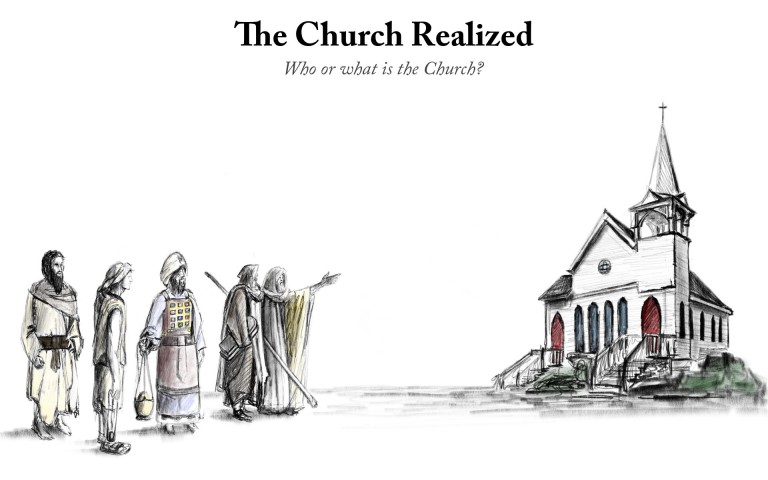
 RSS Feed
RSS Feed





